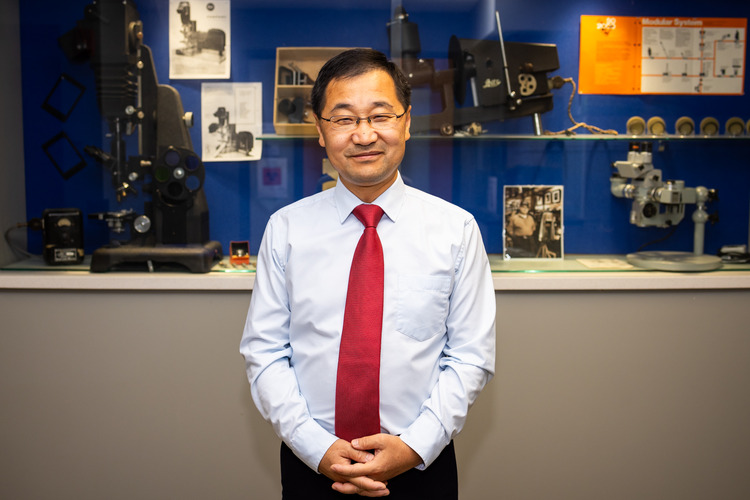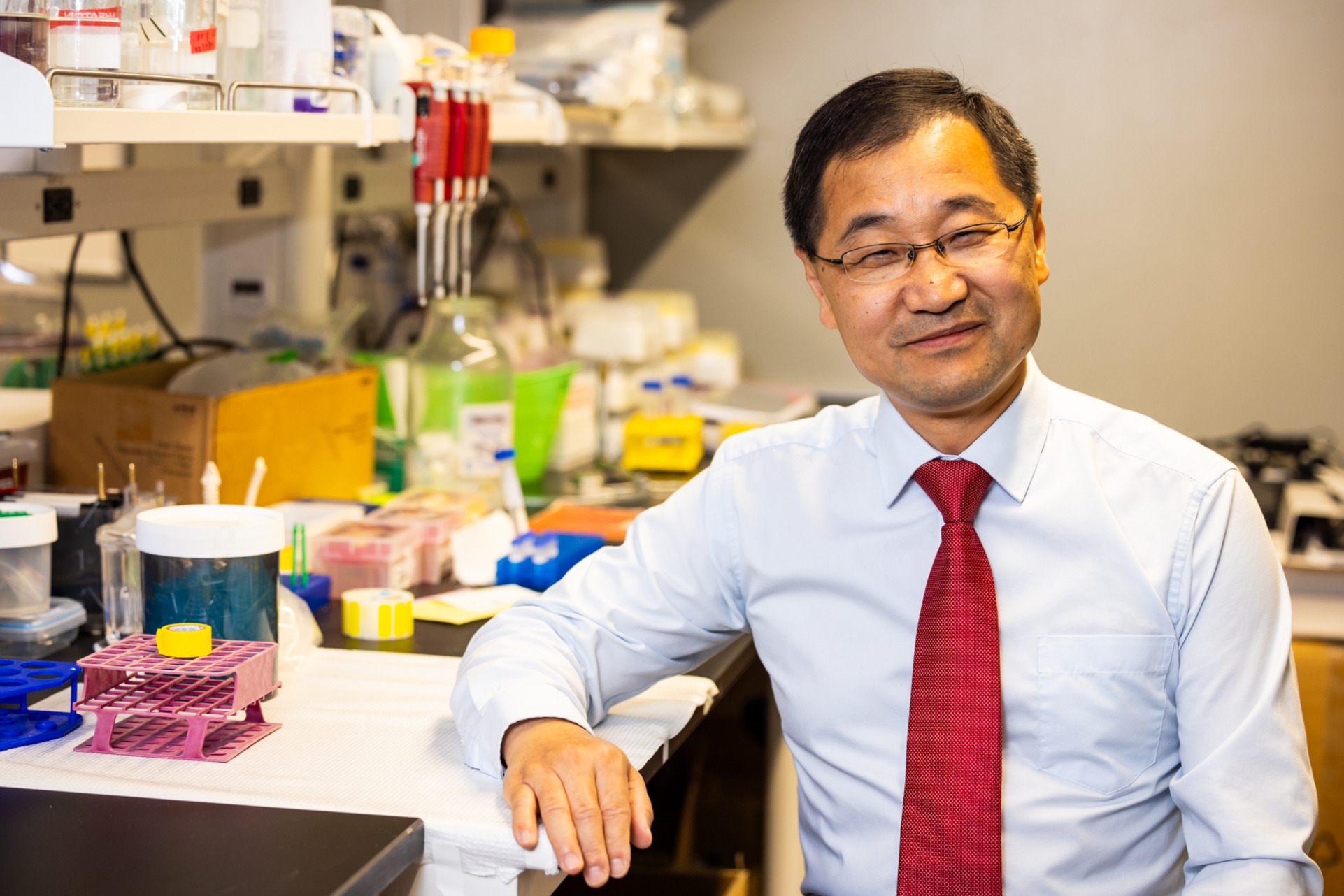Shizhen “Jeff” Wang recently received the R01 grant, a research project award from the National Institutes of Health (NIH), which will support his research for up to four years with about $1.3 million.
Wang credits the UMKC Center for Advancing Faculty Excellence (CAFÉ) program for help in securing the funds.
The CAFÉ program is currently in its second year. By providing comprehensive resources and support under four pillars (teaching and learning, service and engagement, research and creativity and faculty life and leadership), the program aims to advance faculty excellence.
One of the resources under research and creativity include workshops. During the workshop Wang attended, Chris Liu, Ph.D., Yong Zeng, Ph.D. and Alexis Petri, Ph.D., shared their experiences applying for federal grants and, more importantly, as grant reviewers.
“This was especially helpful for me as a junior faculty member without grant-reviewing experience. Developing the ability to write grant applications from the standpoints of reviewers is a key point to impress scientific reviewers and get their endorsements on my research project,” Wang said.

The CAFÉ workshop that Wang attended also featured experienced senior faculty Mark Johnson, Ph.D., professor at the UMKC School of Dentistry. His talk on preparing compelling grant applications to the NIH and effective ways to communicate with program officers to get their help and support was extremely helpful for Wang as he prepared his grant summary proposal. Feedback from other workshop attendees and the seed money that supported Wang’s quest to obtain his research’s preliminary data were additional benefits the CAFÉ workshop provided him as he worked on his grant application.
The grant will help support Wang’s project to understand the structure, function and drug modulation of cardiac voltage-gated sodium channel Nav1.5.
Wang’s lab will research how the Nav1.5 channel opens or closes in response to electrical stimuli and how genetic mutations alter the structure and function of the Nav1.5 channel that could lead to life-threatening diseases. These studies will pave the way for developing novel drug molecules to treat arrhythmias with higher specificities.

